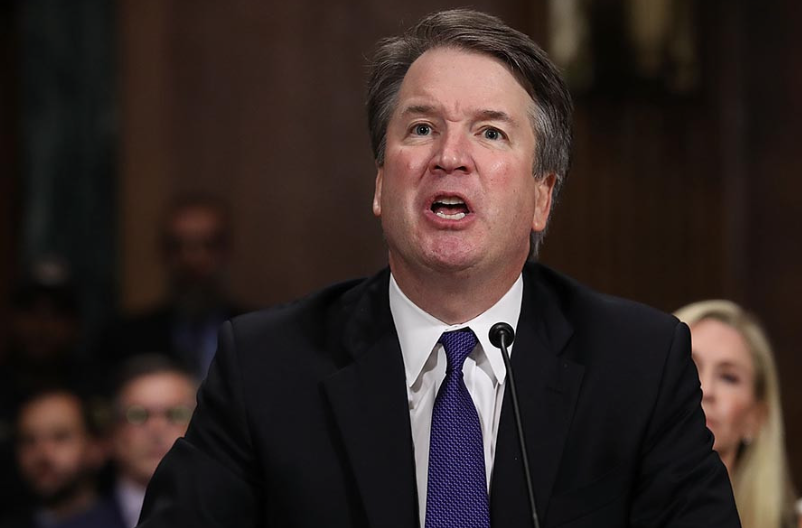Brett Kavanaugh Shut Down by Supreme Court Justices

U.S. Supreme Court Justice Brett Kavanaugh faced opposition from his fellow justices regarding a case that challenged online sports betting.
The Supreme Court denied a writ petition submitted by two competing gaming companies, West Flagler Associates and Bonita-Fort Myers Corporation. These companies had requested the justices to rule against an agreement between the Seminole Tribe of Florida and Governor Ron DeSantis, which provided the tribe with exclusive rights to operate casino gambling and mobile sports betting in Florida.
Despite previously expressing that the issue was significant, Kavanaugh voted to grant the petition. However, the majority of justices chose to end the legal dispute over the compact. Since the Supreme Court requires at least four justices to agree to hear a case, Kavanaugh’s solo vote was not enough to grant certiorari for the Florida case.
Justice Ketanji Brown Jackson, citing her prior role in the U.S. Court of Appeals for the District of Columbia, did not participate in the decision. This same court had overturned a federal court's decision last June.
Following an appeals court's reversal of a ruling that found the compact violated the Indian Gaming Regulatory Act, the Seminole Tribe of Florida continued to accept online bets. This reversal sided with the gaming competitors, according to Newsweek.
West Flager and Bonita-Myers filed a lawsuit against Interior Secretary Deb Haaland, who oversees tribal gaming. They argued that online wagers were placed through servers on reservations, thus not constituting betting on tribal land.
“The Seminole Tribe of Florida applauds today’s decision by the U.S. Supreme Court to decline consideration of the case involving the Tribe’s Gaming Compact with the State of Florida,” said Gary Bitner, a spokesperson for the tribe, to the Sun Sentinel on Monday. “It means members of the Seminole Tribe and all Floridians can count on a bright future made possible by the Compact.”
In 2021, DeSantis approved legislation establishing the largest gaming compact to date.
The compact allocates significant funds for property acquisitions, wildlife conservation, and waterway protection, amounting to hundreds of millions of dollars. Since the tribe began operations late last year, Florida has generated over $120 million in revenue from online sports betting.
The competing companies argued that the compact gave the tribe a monopoly on sports betting and created a “backdoor” method to bypass the state Constitution, which was amended in 2018 to require a citizens' initiative for expanding casino gaming beyond tribal lands.
West Flager and Bonita-Myers have also sued DeSantis and Florida lawmakers in a case currently before the Florida Supreme Court.
The Supreme Court has been quite active recently.
Last week, the Court decided that authorities are not required to hold a prompt hearing when they seize cars and other property used in drug crimes, even when the property belongs to "innocent owners."
The justices voted 6-3 against the claims of two Alabama women who waited over a year for their cars to be returned.
Police had seized the cars while others were driving them, after finding drugs.
Civil forfeiture allows authorities to seize property without proving it was used illegally. Critics describe this practice as “legalized theft.”
Justice Kavanaugh, writing for the conservative majority, stated that a civil forfeiture hearing to determine permanent loss of property must be timely. However, he noted that the Constitution does not mandate a separate hearing for determining temporary retention of property by police.
Justice Sonia Sotomayor, in a dissent for the liberal justices, argued that civil forfeiture is “vulnerable to abuse” due to police departments' financial incentive to keep the property.
Halima Culley and Lena Sutton filed federal lawsuits, arguing they deserved a speedy court hearing to retrieve their cars much sooner. There was no indication that either woman was aware of or involved in the illegal activities.
Sutton had lent her car to a friend. Police seized it when he was arrested for methamphetamine trafficking in Leesburg, Alabama.
During the 14 months without her car, Sutton's attorneys reported that she struggled to find work, pay bills, or attend mental health appointments.
Culley had given her son a car for college. Police in Satsuma, Alabama, found a loaded gun and marijuana in the car, seized it, and charged her son with marijuana possession.
Justice Clarence Thomas joined Justice Neil Gorsuch in a statement acknowledging that more fundamental questions about civil forfeiture remain unresolved. Gorsuch was part of Thursday’s majority.